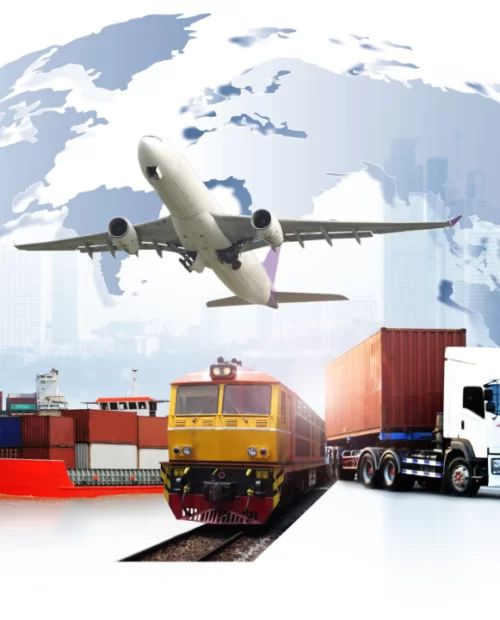Hiring a logistics agent in China is crucial for businesses importing goods worldwide. From shipping costs to customs clearance, agents simplify complex processes and prevent costly mistakes. This guide explains freight charges, transit times, required documents, shipping methods, and real-world examples so that importers can optimize their supply chain.
What Is a Logistics Agent in China?
A logistics agent acts as a bridge between shippers and carriers. They manage booking, documentation, customs clearance, and delivery coordination. Moreover, they negotiate freight rates, consolidate cargo, and provide real-time tracking.
Why Should You Work with a Logistics Agent?
Although some importers try to handle shipping independently, a professional logistics agent reduces risks and saves time. Additionally, agents:
- Ensure compliance with customs laws
- Offer better rates through carrier networks
- Provide multiple shipping solutions (air, sea, rail)
- Manage warehousing and last-mile delivery
As a result, businesses gain efficiency, cost savings, and peace of mind.
How Much Does Shipping Cost with a Logistics Agent?
Costs depend on mode, season, weight, and destination.
| Mode of Transport | Average Cost (USD) | Transit Time | Pros | Cons |
|---|---|---|---|---|
| Air Freight | $5–8/kg | 5–8 days | Fast, reliable | Expensive for bulk |
| Sea Freight (FCL) | $2,800–3,800/40HQ | 30–40 days | Economical, best for volume | Long delivery |
| LCL Shipping | $50–70/CBM | 35–45 days | Flexible for SMEs | Risk of delays |
| Rail Freight | $2,000–2,500/20GP | 18–22 days | Faster than sea, eco-friendly | Limited routes |
What Documents Do You Need for Shipping?
- Bill of Lading or Air Waybill
- Commercial Invoice
- Packing List
- Certificate of Origin
- Customs Declaration
- Import Licenses (when required)
Proper paperwork ensures quick clearance and avoids penalties.
Which Are the Key Shipping Routes from China?
- China → USA: Shanghai → Los Angeles, Ningbo → New York
- China → Europe: Shenzhen → Rotterdam, Qingdao → Hamburg
- China → Africa: Guangzhou → Lagos, Yiwu → Durban
- China → Australia: Shanghai → Sydney, Ningbo → Melbourne
How Long Does It Take to Ship Goods?
| Route Type | Transit Time |
|---|---|
| Air Freight | 5–8 days |
| Sea Freight | 30–40 days |
| Rail Freight | 18–22 days |
| Courier | 3–6 days |
Transit varies depending on customs efficiency, weather, and port congestion.

What Are the Pros and Cons of Air vs Sea vs Rail?
| Mode | Pros | Cons |
|---|---|---|
| Air Freight | Fast, secure | High cost |
| Sea Freight | Cost-effective, handles volume | Slow |
| Rail Freight | Balanced speed & cost | Limited destinations |
| Courier | Door-to-door convenience | Expensive |
How to Reduce Shipping Costs with a Logistics Agent in China?
- Consolidate small shipments into FCL containers.
- Compare multiple agents’ quotes.
- Book early during peak seasons.
- Select nearby Chinese ports like Ningbo or Qingdao.
- Negotiate Incoterms such as FOB instead of CIF.
Real Case Studies
Case 1: Electronics (Shenzhen → Los Angeles, Sea Freight)
- Cargo: 40HQ container of electronics (25 tons)
- Cost: $3,500 all-in
- Transit: 34 days
- Agent ensured customs clearance and door delivery.
Case 2: Fashion Apparel (Guangzhou → Madrid, Air Freight)
- Cargo: 950 kg textiles
- Cost: $5.6/kg ($5,320 total)
- Transit: 7 days
- Agent handled VAT paperwork and warehouse delivery.
Conclusion
Choosing a logistics agent in China provides cost control, compliance, and timely shipping. Businesses should compare agents, review routes, and confirm services before finalizing. With strategic planning and experienced partners, international trade becomes smoother, more affordable, and more reliable.
- Consult TJ China Freight Forwarding for the lowest quote. They will provide you with reliable, cost-effective service.
FAQ:
Q1.Can a logistics agent in China help with customs clearance?
Yes, they prepare paperwork, handle duties, and ensure faster clearance for smooth supply chain operations.
Q2.What is the cheapest way to ship goods from China?
Sea freight FCL is cheapest for bulk cargo. It lowers per-unit cost and stabilizes logistics agent in China pricing.
Q3.Do small businesses benefit from hiring a logistics agent?
Yes, LCL and courier solutions make shipping affordable for SMEs while ensuring smooth logistics agent in China support.
Q4.How long does air freight take from China to Europe?
It averages 5–8 days, making it the fastest solution with reliable logistics agent in China partners.
Q5.Can agents arrange door-to-door delivery?
Yes, most logistics agent in China providers offer DDP solutions that cover pickup, shipping, customs, and final delivery.




